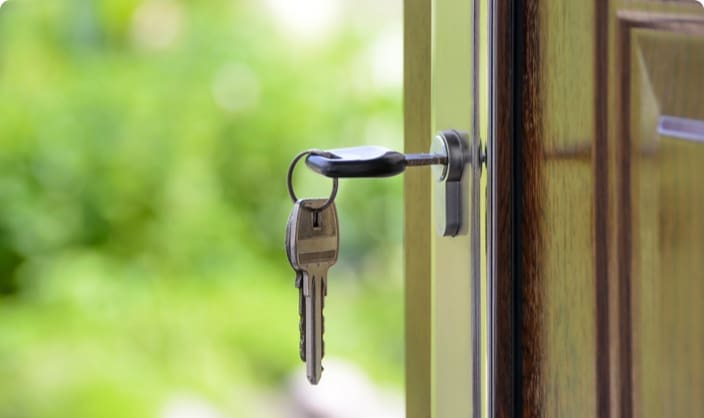Remortgage to consolidate your debt
If you’re a homeowner struggling with debt, there are options to help. A debt consolidation remortgage (or a secured personal loan) can be used to release equity in your home. You can use this money to pay various debts and combine everything into one monthly repayment plan with your mortgage provider.
Get in touch for a free initial, no-obligation discussion about your mortgage situation.
Do you qualify?
No credit checks & only takes minutes!
Fill out our quick and easy Mortgage Affordability calculator below. We only require a few details to see how much you may be able to borrow.
NO CREDIT CHECKS!
- Can I get a remortgage to clear my debt?
- Try our mortgage affordability calculator
- Is it a good idea to remortgage for debt consolidation?
- Read our remortgage guide
- What type of debt can you consolidate into a mortgage?
- Can you remortgage for debt consolidation with bad credit?
- Secured loans for debt consolidation
- Remortgage for debt consolidation
- Debt consolidation mortgage advice
We have created this useful guide to help you make an informed decision about debt consolidation mortgages.

Can I get a remortgage to clear my debt?
It is possible to consolidate debt into a mortgage. If you are a homeowner with an existing mortgage, the accrued equity in your home can help you to improve your financial situation.
How does mortgage debt consolidation work?
The equity in your home can be used to consolidate debts, allowing you to merge multiple payments into a single, more manageable monthly payment. You may be able to do this with your existing lender or you may get a better interest rate with a specialist lender.
It is not possible as a first-time buyer to gain a debt consolidation mortgage, as you must have equity in your home to release.
Is it a good idea to remortgage for debt consolidation?
There are both advantages and disadvantages to consolidating your debt repayments into your mortgage. It’s important to understand both to ensure that it’s the right decision for your situation.
- Mortgage rates are often lower than the rates found on unsecured debts like credit cards and loans. If you can secure a lower interest rate through remortgaging, you could save money over time.
- Consolidating your debt can simplify your finances by reducing your monthly payments into one.
- Debt consolidation can lower your overall monthly payments, but it might result in paying more interest over the long term. Evaluate the difference between lower monthly payments and the total cost of borrowing. Our mortgage advisors can help you with these calculations.
- Lower payments would lead to increased spare capital each month to help you to budget more effectively.
- Additional borrowing on your mortgage to clear debt can put your home at risk if you can’t keep up with your payments.
- Borrowing money against your property will also reduce the amount of overall equity in your home.
- There is the potential that you may pay more interest in the long run if your term is longer.
- You may incur an early repayment charge from some lenders if you pay them back before the end of the repayment term set.
What type of debt can you consolidate into a mortgage?
When consolidating debt into a mortgage, you can typically include various types of unsecured debt. Common types of debt that can be consolidated into a mortgage include:
- Credit card debt
- Personal loans
- Car loans
- Student loans
- Store cards
- Catalogue accounts
Can you remortgage for debt consolidation with bad credit?
There are some specialist lenders who might offer debt consolidation mortgages to those with bad credit. However, it’s not always possible and you may need to wait until you have improved your credit score.
If you’re struggling to consolidate your debts with a loan or remortgage, it could be for different reasons such as:
- You don’t make enough money to keep up with the repayments
- Your credit score is too low
- Your current debt to income ratio is too high
Exploring debt consolidation as a financial strategy has the potential to simplify your payment structure, expedite your journey to becoming debt-free, and potentially result in cost savings. Nevertheless, it’s essential to recognise that while debt consolidation can be advantageous, it may not always be the most suitable solution. To make an informed decision on how to address your debt situation, it is imperative to assess your unique circumstances and financial objectives carefully.
Debt consolidation will affect your credit score as you are applying for more credit. At first, you may see a drop in credit, however, over time you will likely see an increase as long as you don’t keep applying for more credit.
Secured loans for debt consolidation
A secured loan to consolidate your debts entails borrowing money secured against your home to pay off what you owe to various lenders. Often referred to as a ‘second charge’ against your property, you must remember that if you, for whatever reason, fail to keep up with repayments, then not only will you damage your credit rating, making it more difficult for you to borrow money again in the future, but also your home could be potentially at risk.
However, as a lender’s assessment for a secured loan can be more favourable than that for a mortgage, a secured loan can be a useful option to consider if you have had problems with obtaining a new mortgage because of a poor credit rating.
It can also work very well for people who would face burdensome charges for early repayment of their existing mortgage, or those who simply want to retain their current mortgage arrangements. In these cases, a secured loan could be the best option.
Remortgaging for debt consolidation
The best alternative to a secured loan is to take out a remortgage on your home. If you have sufficient equity in your property, then you can use the large lump sum this could generate to pay off your other existing debts.
The amount you will be able to borrow will depend on the current value of your home and the remaining balance on your mortgage. But you should also bear in mind that the maximum most mortgage lenders will allow you to borrow (at the time of writing) is 90% of the value of your property.
For example, if your property is worth £250,000, and you have £100,000 of your mortgage left to pay, then there is £150,000 of equity in your home. However, the most you will be able to borrow under a remortgage would be 90% of the property’s value, meaning the largest mortgage you could have would be £225,000, and the lump sum you might see from remortgaging to pay off your debts would be £125,000.
Also note, any mortgage offer will be subject to the lender’s assessment criteria, and they may only be prepared to offer a lower loan-to-value ratio for the loan.
The peace of mind you would get from paying off all your debts and bringing what you owe under one single monthly repayment is eclipsed only by the substantial potential financial benefit you can gain from consolidating your debts in a remortgage deal. Interest rates for remortgages are usually much better than those for short-term loans.
Here is an illustration of how interest rates and payments can compare:
Multiple Lenders:
| Type | Balance | Term | Rate | Monthly Payment |
| Mortgage | £120,000 | 22 years | 4% | £685 |
| Loan | £12,500 | 6 years | 15% | £265 |
| Loan | £3,000 | 4 years | 17% | £87 |
| Credit Card | £5,000 | NA | 22% | £92 |
| Total | £140,500 | £1,129 |
Single Mortgage Loan:
| Type | Balance | Term | Rate | Monthly Payment |
| Mortgage | £140,500 | 22 years | 4% | £802 |
| Total | £140,500 | Saving of £327 PER MONTH |
As ever, you should always remember that everyone’s circumstances are different, and you should take a careful look at how this would work in your own situation before making a decision.
Debt consolidation mortgage advice
Our team of expert mortgage brokers are on hand to help you find the best mortgage deal for your situation.
We'll call you…
"*" indicates required fields





